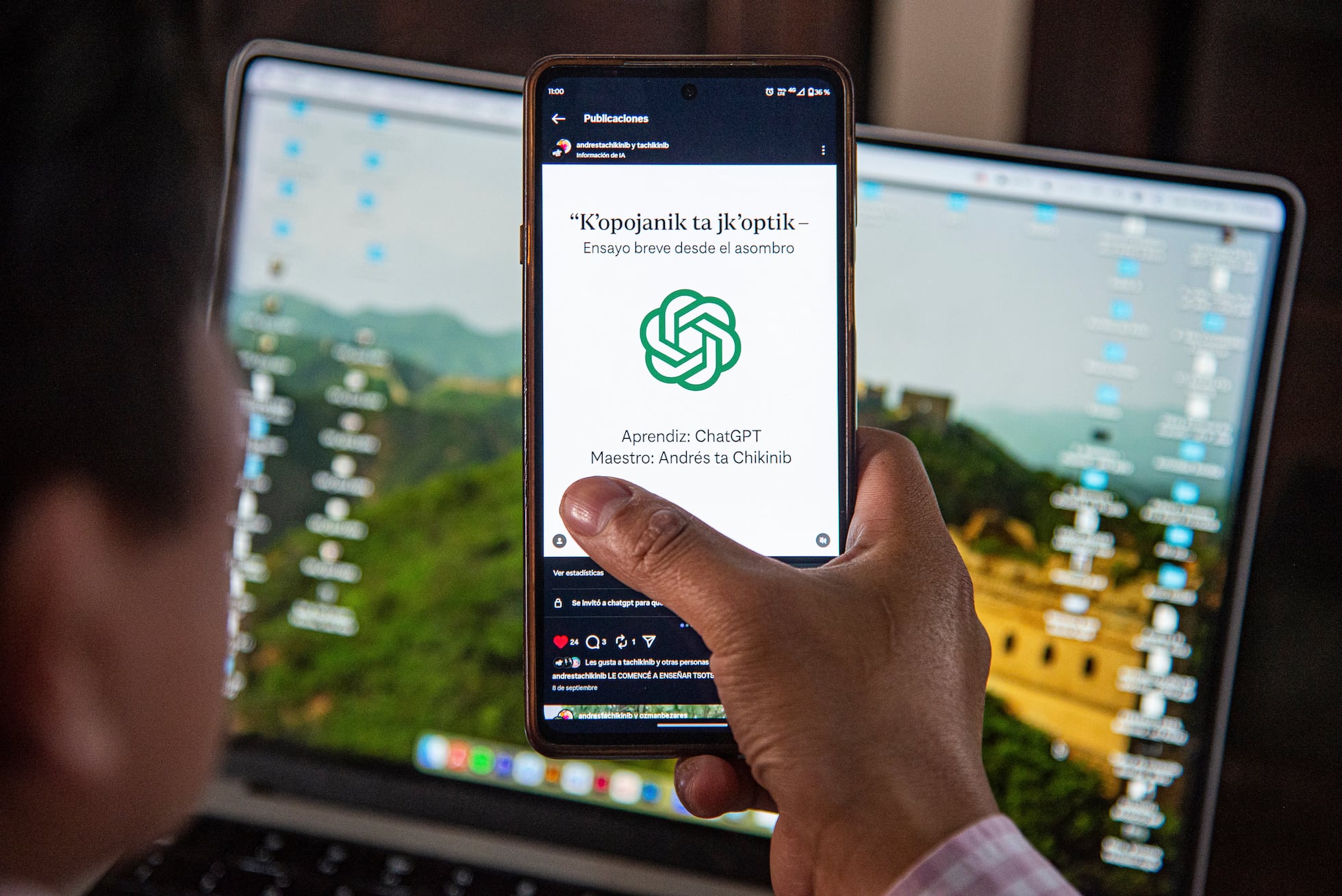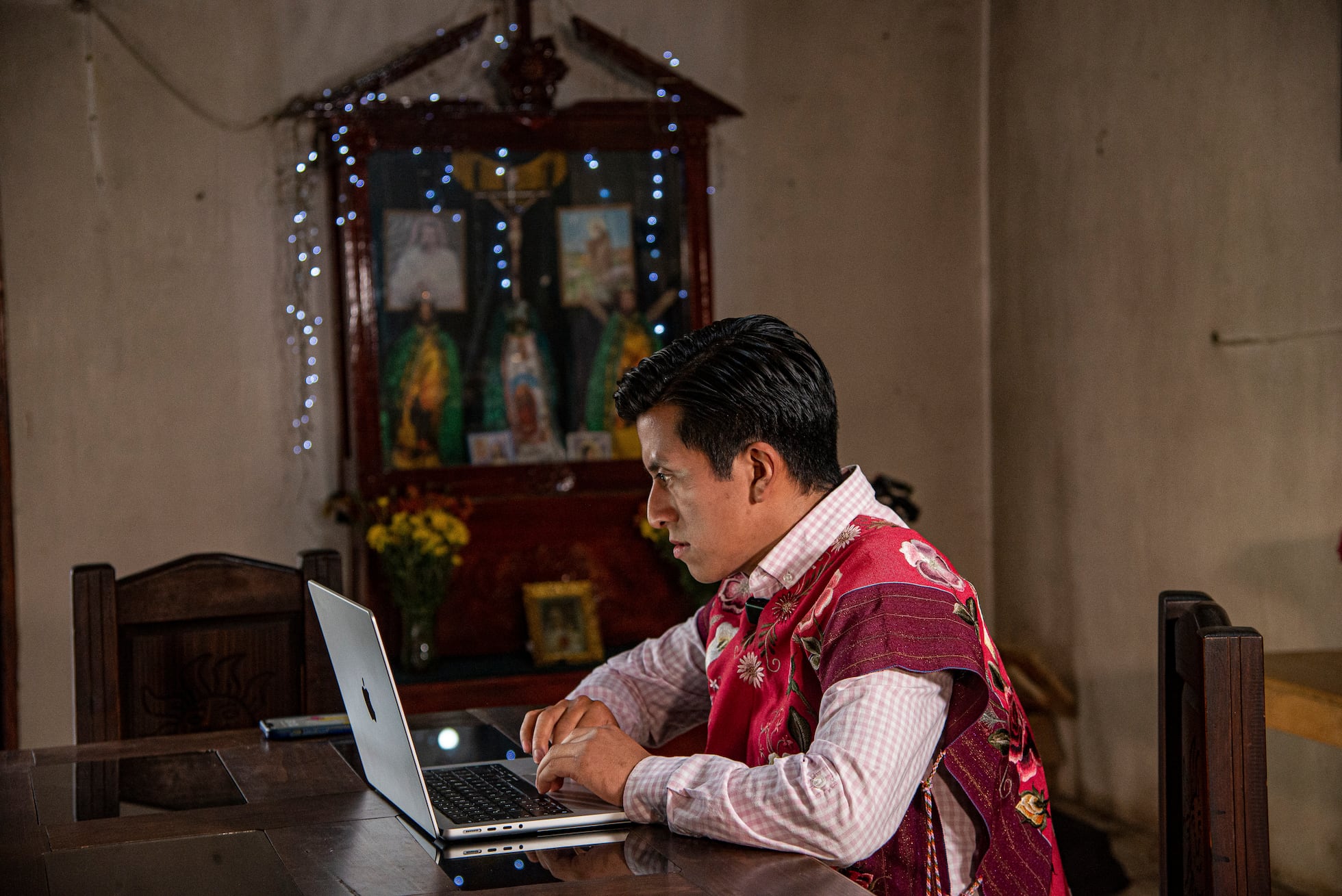Developer Offer
Try ImaginePro API with 50 Free Credits
Build and ship AI-powered visuals with Midjourney, Flux, and more — free credits refresh every month.
How A Poet Taught An Ancient Mayan Language To ChatGPT
From Human Students to an AI Protégé
When Mexican poet and teacher José Andrés Hernández Pérez started giving Tzotzil lessons a year ago, he never imagined his most unique student would be non-human. The idea to teach ChatGPT the Mayan language came from a human student who suggested using the AI to generate teaching materials. However, the first attempt was a failure. Hernández Pérez admits he fed the information to the chatbot without any structure. "It seemed like it was stumbling and not understanding much. It could memorize everything, but poorly and not the way it should have," he recalled. This initial setback led him to change his entire approach. He began treating ChatGPT like any other student, clearly explaining that it needed to learn and memorize his lessons with the ultimate goal of holding a conversation in Tzotzil. "And that’s where the whole thing started," he says.

A New Teaching Strategy and Rapid Progress
Remarkably, within just three weeks, ChatGPT began forming its first sentences. "It already speaks like a child of three or four," says Hernández Pérez, who is also known as Andrés ta Chikinib, meaning "Andrés in oak." The AI has already mastered the alphabet and the complex system of personal pronouns in Tzotzil. "It understands that in Tzotzil, we speak not only of six personal pronouns but of seven, because there are inclusive ones and exclusive ones. It also knows that Tzotzil verbs end in ‘el’ and that nouns end in ‘il,’ but with certain rules," he explains. His AI student even learned to call the language by its native name: optike.
Overcoming Challenges and Teaching Nuance
Andrés ta Chikinib notes that while his focus has been on written Tzotzil, the progress has been astonishing, sometimes outpacing human students in its ability to complete exercises. But the artificial intelligence is not yet perfect. A common mistake it makes is confusing words from other Mayan languages, like Yucatec Maya or Tseltal, with Tzotzil. Initially, it also struggled by trying to mix his lessons with outdated research it found online. "Everything I was teaching it, it wanted to mix with research it found on the internet. It was from the last century, like the first Tzotzil research done by Americans," he explains.

Teaching a language also means teaching its culture. Hernández Pérez has been careful to provide context on sensitive topics, such as terms related to the LGBTQ+ community that can carry prejudice. "I’ve already taught it some terms, but I qualify the information," he says, ensuring the AI understands the stigma that can be attached to certain words.
A Tool for Language Preservation
Despite some criticism for teaching an indigenous language to an AI, the poet firmly believes the language itself is the ultimate beneficiary. "Then we complain that there’s nowhere to teach Tzotzil," he argues. "Yes, ChatGPT is a for-profit company, but if we see it as a tool, we can take advantage of the platform and use it to help us develop further." His project gained significant attention after he posted an essay written by the chatbot about its learning experience, which quickly went viral. While he hasn't used AI-generated materials for his human students yet, it has become a valuable assistant for creating scripts for his educational social media videos.
When the Student Becomes the Teacher
The relationship has become a two-way street. While he jokes that his AI student "doesn't complain" like his human ones, he acknowledges the profound impact it has had on his own understanding. "As a Tzotzil teacher, it has helped me discover more about the language because, sometimes, humans fail to understand the linguistic universe... There are certain topics that I know how they work because I speak Tzotzil, but that I can’t name in linguistic terms. ChatGPT tells me what they are called and puts them in order," he explains.
The Future of AI and Tzotzil
For now, the AI's knowledge of Tzotzil remains within Hernández Pérez's personal account for privacy reasons, so it cannot teach other users. He isn't currently planning to approach OpenAI to change this. His focus remains on enriching the platform's knowledge from his account, cultivating it as a powerful personal assistant for his mission to preserve and promote the Tzotzil language.
Compare Plans & Pricing
Find the plan that matches your workload and unlock full access to ImaginePro.
| Plan | Price | Highlights |
|---|---|---|
| Standard | $8 / month |
|
| Premium | $20 / month |
|
Need custom terms? Talk to us to tailor credits, rate limits, or deployment options.
View All Pricing Details

